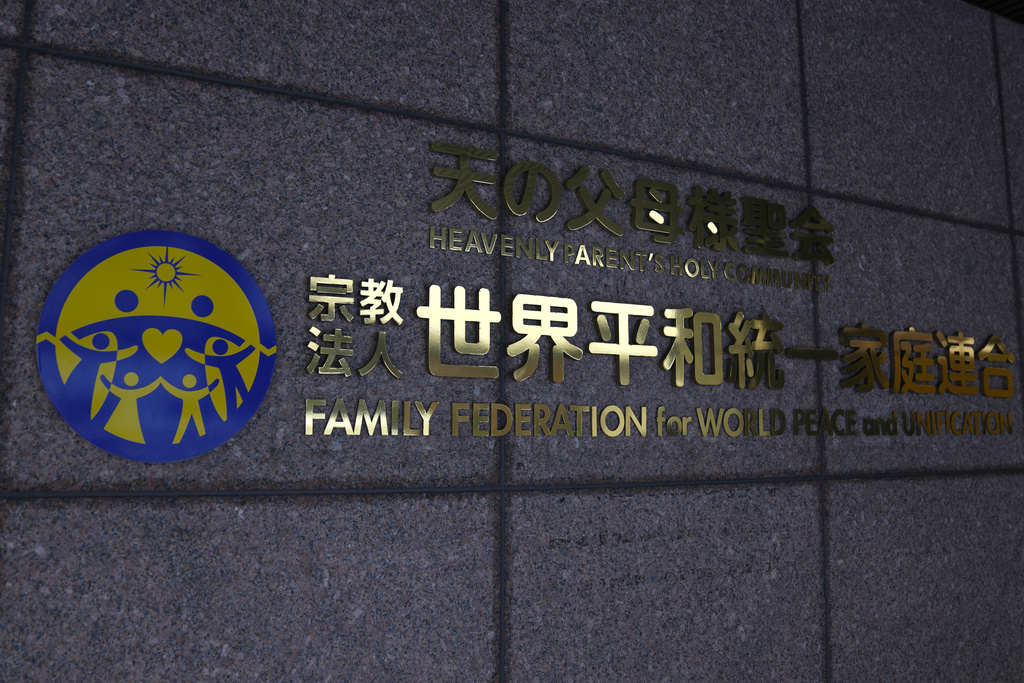Rep. Mark Harris (R-North Carolina) and Sen. James Lankford (R-Oklahoma) have introduced the “Free Speech Fairness Act” that, if adopted, would repeal the Johnson Amendment. That provision of the U.S. tax code prohibits nonprofit groups, including churches, from endorsing or opposing political candidates.
Those found to have violated the Johnson Amendment could lose their tax-exempt status, leaving many pastors to avoid presenting any sort of political positions.
Christian groups have long fought against the amendment, arguing that it restricts free speech rights of churches and other religious groups.
President Donald Trump agrees. In his first term, in 2017, he pledged to get rid of the Johnson Amendment.

That never happened, though Trump did sign an executive order with heavy-handed language instructing the Internal Revenue Service (IRS) to use maximum discretion when enforcing it.
The proposed legislation would restore free speech rights for pastors and other nonprofit groups, allowing them to briefly mention political candidates so long as the comments are made during sermons or a group’s regular activities.
“From the time the Johnson Amendment went in place it created a black cloud, if you will, over pastors and pulpits across America using the tax exempt status as almost a wedge that would cause pastors to feel like if you spoke about a political candidate or in any way or influenced what was happening in an election, that they were going to come in and remove your church's C3 status,” Harris, a former pastor and former Family Research Council employee, said on Washington Watch Monday.
“Because of that cloud, there have been a lot of pastors who have stepped back, unfortunately, from being willing to speak to those issues,” Harris told show host Tony Perkins.
It’s conceivable that pastors over the last four years could have avoided not only the names of political candidates but even topics, such as gender assignment and transition of the sexes, that might have been sensitive in nature to Democrats.
 Under Joe Biden, the Department of Justice was not known to give some churchgoers the benefit of the doubt. That list includes right-leaning Catholics, who were viewed as potential terrorists by the FBI, or pro-life activists such as Mark Houck.
Under Joe Biden, the Department of Justice was not known to give some churchgoers the benefit of the doubt. That list includes right-leaning Catholics, who were viewed as potential terrorists by the FBI, or pro-life activists such as Mark Houck.
After shoving a man who was cursing him and his son, Houck faced up to 10 years in prison before a Philadelphia jury acquitted him of violating the FACE Act.
Shortly into his second term, Trump issued 23 pardons of pro-life activists, including middle-aged grandmothers, who were charged under the Freedom of Access to Clinic Entrances Act.
Rep. Chip Roy (R-Texas) has filed a bill that would repeal the FACE Act.

While the Biden administration was going after its political enemies, their political allies in black churches were caught reciting talking points about Kamala Harris and her fundraising efforts. More than 50 black pastors were caught likely violating the Johnson Amendment by supporting the Democratic candidate.
Sunday morning sermons could sound different if the bill by Rep. Harris and Sen. Lankford becomes law.
“What we're hoping to build up is it really clarifies and will codify once and for all that the intention should never have been to silence the churches in America, but rather pastors are free to speak, thus saith the Lord God, when they're delivering their messages,” Harris said.
Inside the ‘normal’ framework
He stressed that political comments would have to come within the “normal” context of a pastor’s sermons and other ministry.
Pastors were free to comment politically prior to 1954, he said.
“Pastors felt that freedom to preach election day sermons, to call out elected officials that were not following those biblical principles. That freedom needs to be restored,” Harris said.







